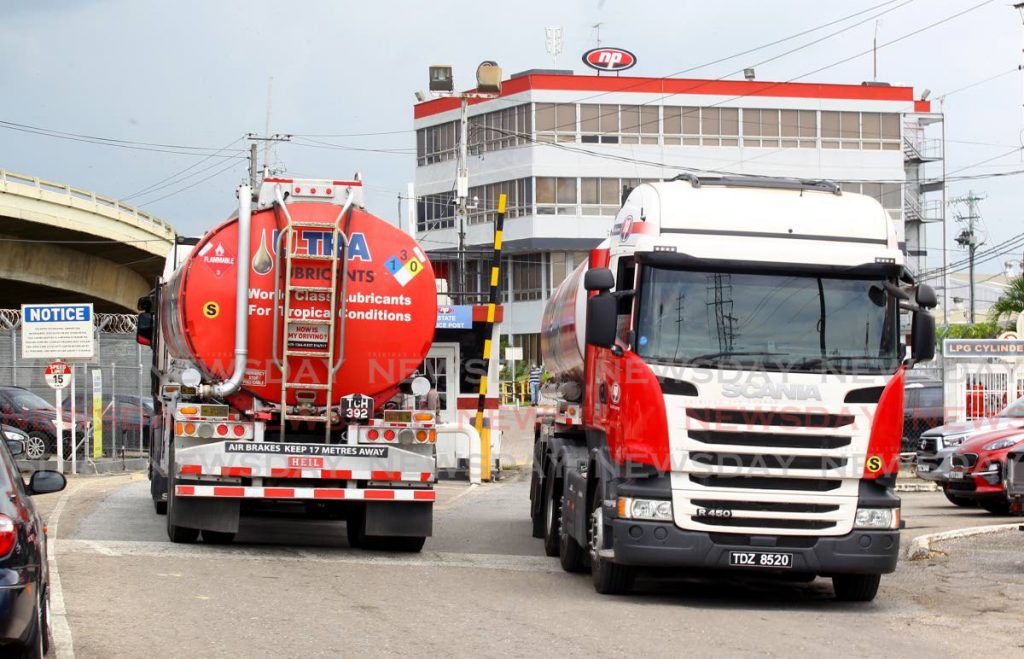Ex-chairman: Put NP on stock exchange instead of selling assets, liberalising fuel

FORMER chairman of National Petroleum Neil Gosine said the Government plan to sell NP’s prized assets is a misconceived scheme and the fuel-liberalisation plan is ill-timed.
He said the combination of selling the company’s largest asset base and liberalising the fuel industry will have a ripple effect on the cost of transporting goods and services that may lead to inflation.
He foresees the privatisation of the company-owned sites opening up possibilities for the formation of cartels on the retail side of the business.
“After Finance Minister Colm Imbert and Energy Minister Stuart Young are finished with NP, the entity as we know it will be decimated, leaving all the employees, dependent companies and thousands of people that depend on its operations at risk, with no future and most definitely on the breadline.
“It will be left in a worse-off state than Petrotrin is currently in,” Gosein said from a United National Congress (UNC) Virtual Report platform on Monday night.
“The National Petroleum Marketing Company’s business model is not the distribution of fuel any more, that’s possibly a misconception by the new Energy Minister. It is actually the franchise agreements with the petroleum dealers that is the sustainable part of NP’s business and what makes NP any money at all in their current market."
He said managing service stations accounts for 70 per cent of NP's business.
“There are 113 stations, of which 75 are company-owned. Dealers own the rest. The estimated value of the service stations owned by NP is approximately $1 billion, with approximately each one costing $5 million-$15 million, depending on volumes of fuels sold at each station and its location.”
He said NP service stations are in prime locations and questioned the wisdom of giving private interests huge state assets when prices are at their lowest.
The privatisation of service stations and selling off its assets puts the company and its future in jeopardy, he said, without any thought for the employees and their families or businesses that depend on NP’s operations. He pointed to the actual franchisee agreements, which include the rent and management of the service stations and the money derived from that aspect of the business.
Many service stations offer rental spaces for lotto machines, convenience stores and food outlets.
“So the Government's...new idea to raise money by selling out NP’s prize assets, which are its prime properties, with gas stations around the twin islands, is a misconceived scheme, to say the least.”
On the proposal to liberalise the fuel industry, Gosine said with the closure of Petrotrin, refineries around the world refuse to offer Paria Fuel, which has emerged as the company to purchase fuel, competitive credit facilities, as it is a relatively new company and has no experience on the market.
“This put our ability to purchase fuel at a disadvantage, as Paria now has to purchase from traders who at times will have fuel and are looking for the best prices to sell their products.
“This means much higher pricing at the pumps once the liberalisation of fuel is implemented by the Finance Minister.
“The liberalisation can effectively be another form of taxation to impose on the already burdened taxpayer and there is no way to protect the public from overpricing at the pump and a cartel arrangement from gas station dealers,” Gosine cautioned.
He suggested a more viable option might be to put the company on the local stock market and allow every citizen a chance to own piece of NP, with shareholdings in the company.
“It is part of our legacy and energy heritage and a company that has been profitable in the past and can be again, under the right management. “


Comments
"Ex-chairman: Put NP on stock exchange instead of selling assets, liberalising fuel"